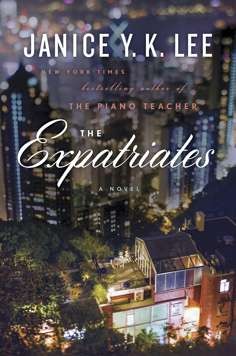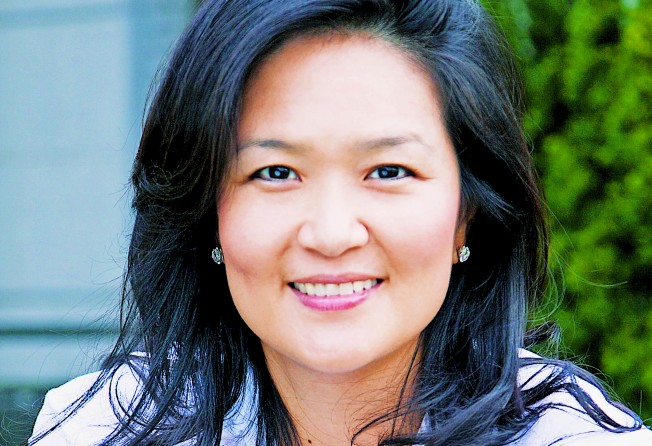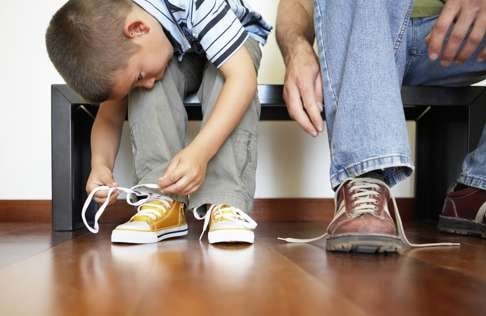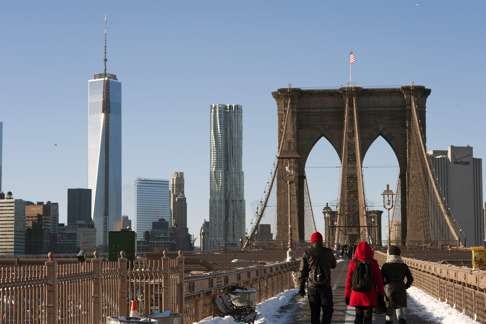
Hong Kong-born Korean-American novelist Janice Lee dissects the expat life
Lee has moved between Hong Kong and the US several times, and her new novel, The Expatriates, captures what it means to always be living in between – and the insidious effect it can have on your children

[Janice Lee, Class of 1989] In her second novel, The Expatriates, Hong Kong-born author Janice Lee captures a range of anxieties that plague well-off families living abroad. There’s the everyday: learning a new way to communicate with the hired help – indirect, so as to not bruise feelings and seem too hierarchical. Then there’s raising children – privileged and overindulged, whose values are not in sync with those of their hard-working parents.
But Lee doesn’t spare readers the more devastating moments. In one chapter of the book, published earlier this year, a Hong Kong wife discovers her American husband has another wife and children across the border in Shenzhen. It’s her children who ultimately suffer from the fallout.
Lee pushes the complexities – and dangers – an expat family can face in Asia to uncomfortable extremes. One character, an American mother of three called Margaret, suffers an almost unimaginable tragedy while living in Hong Kong. During a family trip to Seoul, she allows her young children to play on a busy street. They are supposed to be under the watch of Mercy, a flighty young Korean-American hired to take care of them. When Margaret pops into a Starbucks, she returns to find her youngest child, G, has disappeared. She quickly realises he has been abducted, never to be seen again.
It is a moment that may well have left many expat readers shaken, dropping their books and running off to hold their kids.

The author admits she was “really scared” about writing this harrowing storyline. “I even put the whole manuscript down for a couple of months.”
But it wasn’t a fear of such perils that lay behind Lee’s growing discontent with expat family dynamics before she left Hong Kong to return to the US last year. Instead, a seemingly innocent domestic incident sent her over that edge. One afternoon, Lee walked upstairs in her house to find her domestic helper tying the shoelaces of her school-age children – something you would probably not see in most American homes. Of course, Lee understands that her helpers were trying to be of loving service. But that moment forced an epiphany: it was time to rethink her children’s lives.

“Shoelacegate” was just the beginning. Lee became increasingly concerned about her children, who range in age from eight to 13, losing touch with their parents’ American values – a preoccupation that is echoed throughout The Expatriates. In an early chapter, Margaret tells Mercy: “What I miss is the young people who will take my children out and really talk to them and can get them moving and thinking. Kids in Hong Kong just want to sit inside in the air conditioning and play video games.”
It is a world Lee is intimately familiar with, having grown up in Hong Kong in a Korean-American expatriate family. She left at age 15, after having lobbied her parents to send her to boarding school in America; she then stayed stateside to study at Harvard.
At one point while I was writing this book, my husband asked if he could read the manuscript. He came back and said to me, ‘Are you unhappy?’
Adult life brought marriage and children, and a home in Manhattan. But when Lee’s eldest child was three, her husband approached her about moving back to Hong Kong for his work. She equivocated. “In some ways I didn’t want to,” she says, measuring her words. “It’s such a small society. I knew I would be entering such an intimate world, the world that a lot of my friends had become part of. It is a privileged bubble and that has a number of effects on your life.”
Indeed, the mood of The Expatriates, which is rich with nuance and dimensional female protagonists, is at turns tense and lugubrious. The main characters’ perspectives on Hong Kong are often conflicted and complex. It seems that, as dreamlike and alluring as Hong Kong can be, it is also a place of stark and challenging contrasts – especially for those who grew up in other countries and with vastly different views on parenting. “At one point while I was writing this book, my husband asked if he could read the manuscript,” Lee says. “He came back and said to me, ‘Are you unhappy?’ I told him I wasn’t unhappy, but I was waiting for our real life to resume. That’s not a great way to spend 10 years of your life. ”

What vision did she have for her children and their education? “I want them to be free and to learn to question everything, and have their own opinions. I want them to be independent,” she says.
“I think children can be sheltered for too long in Hong Kong,” she adds. “I love that now my children put their own dishes in the dishwasher and generally help out more around the house. They understand that all this work doesn’t happen in a vacuum. Too often, Hong Kong kids are just told to study and everything else gets taken care of so they can study. I don’t think like that because I think children should understand a whole life.”
Too often, Hong Kong kids are just told to study and everything else gets taken care of so they can study. I don’t think like that because I think children should understand a whole life
Of course, this radical shift away from privileged Hong Kong life and towards a more do-it-yourself American life comes with its own challenges. For example, she says, juggling the schedules of four children, running a household and carving out time for her creative work, with little domestic support. “In New York, I have a completely frenetic life – no time at all. I sometimes wonder how long it will take me to write another novel.”
She nevertheless makes use of conveniences designed for urban American lives. “The US is geared towards families without help, so the way life is set up is different,” she says. “In New York city, you can get pretty much everything delivered. Fresh Direct does all my groceries, and Amazon Prime and Google Express pretty much take care of the rest. We can order out when I don’t feel like cooking and there are dry cleaners on every street corner. So, it is different, but I’m not sure it’s more difficult.”
Does she ever miss her helper-supported life in Hong Kong? “It was helpful, certainly. But having more people in your house is a decidedly mixed blessing. Sometimes you just want to be alone.”

She readily admits to longing for the carefree afternoons that expat mothers with a nanny often enjoyed. “In Hong Kong, because everyone had help, I feel like families hung out together more,” she says. “I think that people in Hong Kong can then be more generous with their time and more willing to go out and make an effort. In the US, people are more focused on the nuclear family and trying to get by. It’s more isolated. But that can be a good thing because your family becomes very self-sufficient and close.”
People in Hong Kong can be more generous with their time and more willing to go out ... In the US, people are more focused on the nuclear family ... It’s more isolated
And while her children miss Hong Kong, the only childhood life they’d known, they are adjusting well. “They get that they live in America now and that this will be their home for the foreseeable future,” Lee says.
The author looks back on her decade as a Hong Kong parent with great fondness. “It was an idyllic time,” she says, but quickly adds that her family’s new American life makes her feel they made the right move. “I love seeing my children get more independent and opinionated as they become New Yorkers,” she says. “They are really into Saturday Night Live, American football and the election right now.”
One recent moment confirmed for Lee and her family that they have indeed found home: “We’ve had an incredibly mild winter and this past Sunday, we decided to walk across the Brooklyn Bridge. I had never done that before. It was so amazing to be out there, walking across the East River, seeing the New York skyline and the Statue of Liberty in the distance. I felt very blessed and grateful.”